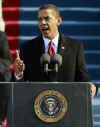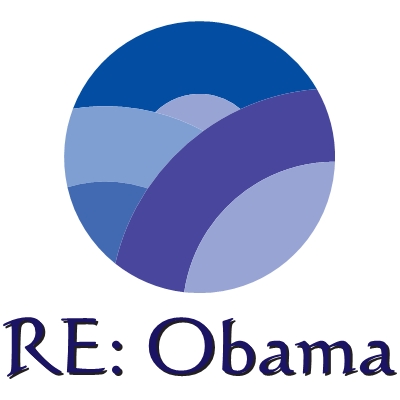PRESIDENT OBAMA: Well, let me express my thanks and appreciation for the visit from President Arroyo. As we discussed during our meeting here and our delegations, the relationship between the United States and the Philippines dates back many years. It is a friendship that is forged not only in treaties and trade relationships and military relationships, but it is also strengthened by very personal ties that exist between our two countries. We are proud to have 4 million persons of Filipino ancestry contributing to our country each and every day, in all walks of life. The fact that we have Filipino veterans who have fought side by side with American soldiers on behalf of freedom — all those things have strengthened the relationship between our two countries.
I am very pleased that President Arroyo has made such good progress on dealing with counterterrorism issues. She has initiated a peace process in Mindanao that we think is — has the potential to bring peace and stability to a part of the Philippines that has been wracked by unrest for too long. We are very grateful of the strong voice that the Philippines has provided in dealing with issues in Asia ranging from the human rights violations that have for too long existed in Burma to the problems that we’re seeing with respect to nuclear proliferation in North Korea.
I am looking forward to my travel to Southeast Asia, and the Philippines will be the coordinating country in the U.S. relationship with ASEAN, the primary organization — strategic organization for Southeast Asian countries. And in addition, the Philippines will be sharing the Non-Proliferation Treaty conference that will be taking next — place next year.
And so we’re going to have a busy agenda together working to reduce the threat of nuclear weapons, improving the multilateral partnerships in Asia that can create greater security and greater prosperity for all countries. And in addition, we continue to be grateful for the outstanding contributions that the Philippines has made with respect to U.N. peacekeeping around the world.
So although the Philippines is not the largest of countries, it, in using a phrase from boxing, punches above its weight in the international arena, and we are very grateful that President Arroyo has visited us here today, and we are looking forward to using this meeting as a way of launching even greater cooperation between our two countries in the years to come.
PRESIDENT ARROYO: Thank you, Mr. President, and thank you for inviting me to have this very important conversation here in the White House.
The U.S. is very essential to the economic, diplomatic, and national security of our country. We are very thankful for the U.S. as an important ally in helping to professionalize our military and making it more effective.
Just as important, we are thankful to the U.S. for being such a good ally in our — working on soft power by helping us build bridges, roads, schools, not only in Mindanao but across the nation. And this assistance of the U.S. has gone a long way in helping us to achieve what we have been able to achieve in the peace process in Mindanao in southern Philippines, and also in our fight against terrorism.
I was very happy to let President Obama know that the Muslim secessionists have agreed, together with a Philippine government panel, to work towards a resumption of formal peace talks, and we’re very thankful for the international community, including the U.S., for their assistance in bringing us to this stage.
Internationally, we stand foursquare behind the United States on the position that it has taken with regard to Burma and with regard to North Korea’s nuclear adventurism.
We also applaud President Obama for his leadership on climate change, which is so important to the Philippines because we are an archipelagic country and severe climate change is going to be disastrous for our country. We are already feeling the weather pattern changes in the rising seas.
We are also — finally, may I say that I bring the thanks also of our Filipino veterans for the inclusion of the veterans’ benefits in the fiscal stimulus package, something that we have all waited for as a country for the last 60 years.
So I’m very grateful for this opportunity. We thank the Obama administration for the new engagement in our part of the world, and we look forward to a stronger relationship between the U.S. and ASEAN and, bilaterally, a stronger relationship with our two countries.
Thank you, Mr. President.
PRESIDENT OBAMA: Thank you so much.
Okay, we’re going to take two questions, one from a Filipino reporter.
PRESIDENT ARROYO: Yes.
PRESIDENT OBAMA: Yes. This gentleman right here. Is this a good — (laughter.)
Go ahead.
Q Thank you very much, Mr. President, and President Gloria Macapagal-Arroyo. I am from the Philippine media, sir. It’s noted that you’re the first Asian head of state to be afforded by President Obama this — such an invitation. As much as this is your first time to see President Obama in person and you have talked to him, could you kindly share to us, Madam President, your impressions of the American President? (Laughter.)
PRESIDENT OBAMA: I’m sure she thinks I’m much younger looking than she expected. (Laughter.)
PRESIDENT ARROYO: Well, as a person, President Obama is very cordial, warm, and welcoming. And I’m really very impressed about — of his deep understanding and knowledge of the Philippines and the Filipino people — the understanding of the close relationship within the Filipino people and the American people.
And we — I think we connected very well also on our position with regard to Burma and Aung San Suu Kyi, with regard to North Korea and nuclear proliferation, with regard to human rights and terrorism. And we welcome President Obama’s reaching out to the Muslim world, and also we are very pleased about his — the importance that he accords to engagement with our part of the world.
Q Is it considered to be ungrateful if I will not get your reaction? It will be greatly appreciated if you can also give your impression of our President.
PRESIDENT OBAMA: Well, obviously, President Arroyo has done outstanding work on a whole range of issues. She mentioned the areas where the United States and the Philippines are of one accord, but as evidenced here today, she’s somebody who knows the issues. She has experience leading the Philippines through some very difficult times. She has expressed a great friendship towards the United States, and aside from her great personal charm — (laughter) — we are very appreciative of the concrete ways in which her administration has pursued strengthening ties with the United States. So I’m very grateful for that.
Okay, Jeff Mason.
Q Yes, sir. A double-barreled question for you. First of all, what do you expect to be the main message of the GDP figures that come out tomorrow? And second of all, what do you think will be the main message of your meeting tonight in the Rose Garden?
PRESIDENT OBAMA: On GDP, I don’t have a crystal ball and I haven’t received the figures yet, but I think if you look at the consensus of economists right now, it confirms that we have seen a significant slowing down of the contraction over the last several months. There are a lot of indicators out there that tell us that job losses, although still way too high, are not at the pace that we were seeing in January or February. Housing prices went up for the first time in three years. The credit system, the banking system, the financial markets generally have settled down. You’re not seeing the huge volatility or panic that you were seeing.
And so all of that is a sign that we have stepped away from the precipice. As Ben Bernanke and others across the ideological spectrum have indicated, we were in a position where we could have gone into a Great Depression. I think those fears have abated.
But I suspect that the GDP numbers will still show that the economy contracted in the second quarter, that job loss is still a huge problem. And you don’t have to read GDP numbers to see that; all you got to do is talk to the American people who are still losing jobs, losing homes, and worried about their ability to keep their health care and finance their child’s college educations. So we’re not going to rest until we have seen not just a technical improvement in GDP but until the American people’s job prospects, their incomes have rebounded — and that’s going to take some time.
With respect to tonight, you know, I am, I have to say, fascinated with the fascination about this evening. As you know, this idea was prompted when I was talking to Sergeant Crowley, and he said, well, maybe I’ll have a beer in the White House someday, and I said, well, you know, I’m sure that can be arranged.
I notice this had been called the “beer summit.” It’s a clever term, but this is not a summit, guys. This is three folks having a drink at the end of the day and hopefully giving people an opportunity to listen to each other. And that’s really all it is.
This is not a — this is not a university seminar. It is not a summit. It’s an attempt to have some personal interaction when an issue has become so hyped and so symbolic that you lose sight of just the fact that these are people involved, including myself, all of whom are imperfect. And hopefully instead of ginning up anger and hyperbole, everybody can just spend a little bit of time with some self-reflection and recognizing that other people have different points of view. And that’s all it is.
And so I will be surprised if you guys all make this the lead as opposed to a very important meeting that we just had with one of our most important partners in the world, but the press has surprised me before. (Laughter.)
Thank you very much.
END
4:01 P.M. EDT



